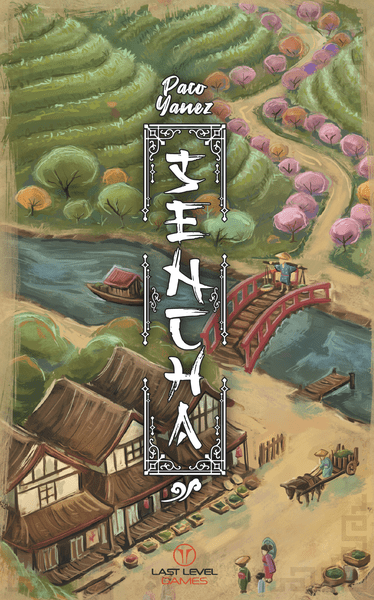Sencha (2019) Board Game
Sencha is a board game designed by Paco Arenas and released in in 2019. The game combines elements of economic strategy, farming, and territory building, making it a unique and engaging experience for players. With a runtime of 45 minutes and suitable for 2-4 players aged 8 and up, Sencha offers a blend of worker placement and area majority/influence mechanics.
Game Components of Sencha
How To Setup Sencha
To set up Sencha, each player chooses a monastery card and places their tokens on the board. The tea tiles are shuffled and placed on designated spaces on the board. Each player starts with a set of action cards and a few purity tokens. The shogun favor tokens are also placed within reach of all players. The game is ready to begin once all components are distributed and the board is fully set up.
Gameplay Mechanics and Game Objective
– Worker placement: Players use their tokens to perform actions such as harvesting tea, improving purity, and gaining favor.
– Area control: Monasteries compete for control over the most valuable tea fields.
– Resource management: Managing tea purity and action cards is crucial.
– Harvest the most pure tea to gain the most prestige from the shogun.
– Accumulate shogun favor tokens through various actions.
Player Experience
In Sencha, players are immersed in a strategic battle for tea supremacy. The game requires careful planning and resource management as players navigate the complexities of tea harvesting and purity improvement. Each turn, players must weigh the benefits of different actions, ensuring they maximize their chances of gaining the shogun’s favor.
Pros
Cons
Personal Thoughts on Sencha
Sencha is ideal for fans of strategic and thematic board games. It is best suited for players who enjoy worker placement and resource management mechanics. The game’s competitive nature makes it a great addition to game nights with friends who appreciate a challenge. However, it may not be the best fit for beginners or those looking for a quick, casual game.
We are supported by our audience. When you purchase through links on our site, we may earn an affiliate commission, at no extra cost for you. Learn more.

